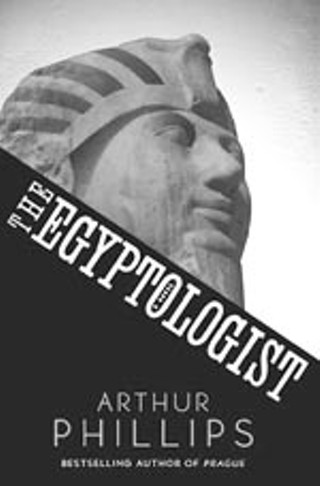Book Review: Readings
Arthur Phillips
Reviewed by Roger Gathman, Fri., Sept. 10, 2004

The Egyptologist
by Arthur PhillipsRandom House, 386 pp., $24.95
Arthur Phillips' new novel reads like a Ripley's Believe It or Not tale gone wrong. Set in the Twenties, on the periphery of Howard Carter's discovery of King Tut's tomb, Phillips' novel traces the decline and fall of an adjunct Harvard Egyptologist, Ralph Trilipush, who is the victim of a curse quite as powerful as the mummy's: the curse of social class. Trilipush presents himself as the scion of a rich English house gone to seed. The Trilipush manor in Kent is closed. Trilipush's Oxford education and rich accent are all the inheritance he has left, he claims. That's enough to persuade his father-in-law-to-be and his seedy associates to back an expedition to discover the tomb of semiapocryphal pharaoh Atum-hadu.
Trilipush's letters (to his fiancé, the mysteriously narcoleptic Margaret) and a journal of his expedition tell us, right off, that he is an unreliable narrator – a spiritual cousin to the King of Zembla in Nabokov's Pale Fire. Unreliable narrators are among the most difficult of the novelist's tricks, always threatening to turn the delicate work of suspending disbelief into an easy, jejune mockery of belief. Phillips not only carries it off, but doubles his bets, so to speak, by intercalating Trilipush's journal with letters from yet another unreliable narrator, an Australian dick named Harold Ferrell. Ferrell's letters are written 30 years after Trilipush's journal. They recount Ferrell's search for Paul Caldwell, the bastard Australian slum spawn of a rich British brewer. Caldwell was last seen in the Egyptian desert (where he was serving as an Australian soldier) in 1918, presumably slain by a party of Turks or Germans while out on a surreptitious dig. Ferrell's worldwide search for Caldwell brings him, serendipitously, into the orbit of Margaret Finneran, where his slightly skewed notions bring about a catastrophe for all parties.
This novel is not so densely felt or immediate as Phillips' first, the excellent Prague. Long passages of Trilibush's misadventures seem a little like a slapstick routine we've seen before, and better, in Waugh. However, the book accumulates a creeping power that pays off in the last 50 pages, when all plotlines converge into something like what the Egyptians called sha – the luck you were born with. The reader, in turn, is urged to persevere.










